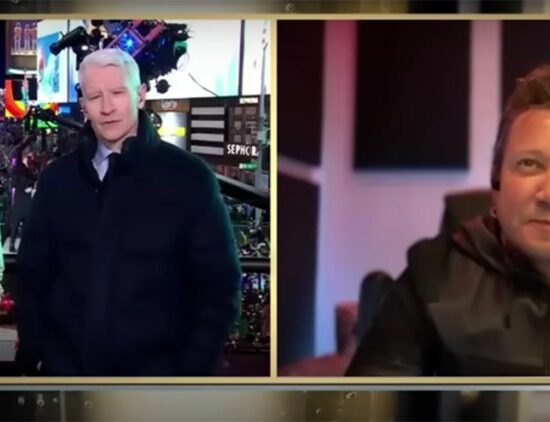
“Whipped Peter” spent 10 days traveling through the alligator- and insect-filled Louisiana swamps to join the Union Army after his escape from Lyons plantation in Louisiana. During his medical examination, onlookers marveled at the constellation of raised scars on his back from constant whippings. When war photographers took a picture of his back, and shared it with others, it reminded white people of the viciousness experienced by the enslaved. Antoine Fuqua’s Emancipation retells the story of Peter and his blood-soaked journey to freedom. Written by Bill Collage (Exodus: Gods and Kings), the film is an unforgiving portrait of a man separated from his family and risking his life to reunite with them.
Emancipation begins when Peter (Will Smith) is sold to a work camp to build the railroad. On the journey, he sees the heads of Black men lining the roads and Civil War deserters hanging from trees by their neck. What awaits him at the work camp is even worse, with endless whippings, beatings, brandings and death. The enslaved work day and night, and sleep in cages like animals–but although the situation is perilous, Peter encourages others to remember that God is with them. It is then he is swiftly reminded to look around at the circumstances and question if God is really there at all.
While working, Peter overhears Confederate soldiers Leeds (Grant Harvey) and Howard (Steven Ogg) having a conversation about how President Abraham Lincoln has freed the slaves and that the Union Army is located in Baton Rouge. Upon hearing this news, he and the other enslaved discuss escape, but don’t have a plan for how to do it. However, when the opportunity arises, Peter and the others go running for their lives, with hunter Jim Fassel (Ben Foster) on their trail. Once they reach the swamps, they find that many other dangers await them besides a bullet.
That photo of “Whipped Peter” has been seared in my mind since high school. When walking into Emancipation, I knew the film was about him, but even knowing that, the film doesn’t earn the reveal moment of Peter’s scars. It comes out of nowhere because there is no previous reference to the upcoming moment, not even a flashback. Someone who would walk into the film blindly most likely would be shocked to see this. Then again, there isn’t much time to take in the experience because you’ll be recovering from the relentless brutality that comes before.
RELATED: ‘Emancipation’ Trailer: Will Smith Flees Brutal Enslavers In Antoine Fuqua’s Harrowing Drama
Antoine Fuqua consistently delivers an air of epicness as a director, and he captures Peter’s gaze as he traverses the swamps on his journey to Baton Rouge. However, that dynamic movement featured in many of Fuqua’s films isn’t a part of Emancipation. The color-graded hues sit somewhere between black, white and gray, but why wasn’t the full color spectrum utilized? Probably to protect the audience from the nonstop blood and gore projected onscreen throughout its 2-hour, 12-minute runtime.
Smith’s and Foster’s performances are strong and sincere; they recite their lines with conviction and are committed to their character goals. However, these are characters that have been seen time and time again in other films about slavery in America.
One highlight of Emancipation is the sound design. It’s so sharp, especially in the scenes where Peter travels through the swamps. You can hear insects directly buzzing past your ear and the squishing of mud under Peter’s feet. Everything is done with intentionality and specificity. The sound goes right through your bones and adds to the “thriller” aspect of the film (if you can call this type of film a thriller).
There is an ongoing debate on about whether films like this are “trauma porn,” or unnecessary in an age where the Black people yearn for modern stories of other types of heroics. There are valid arguments on both sides: Do these types of films get greenlighted more often in Hollywood than any other films about the Black experience? The violent savagery is a part of Black American history that should be recalled and recognized, right?
With Collage penning the script, it adds another layer of nuance to an already complicated conversation that digs up further questions about how these stories are told, and who is telling them. Would it have been a different experience if Collage were Black? Hard to say. One thing the script doesn’t do is create an unnecessary white-savior narrative. Thank goodness that was left out of this because I was dealing with enough based on the visuals.
Honestly, the thought of walking out crossed my mind several times. Not because the film wasn’t up to par, but seeing so much Black death onscreen is exhausting and painful, and there is only so much I can take — even if the ending of a film is hopeful. These types of films are fine if there is something beyond the generic. Is there something new to expect from what the audience is going to see? Is there anything else besides seeing relentless violence? The story of Whipped Peter and the impact he had on the culture of war and American slavery live on to this day, but there has to be another way to tell these stories.
There has to be another way.













